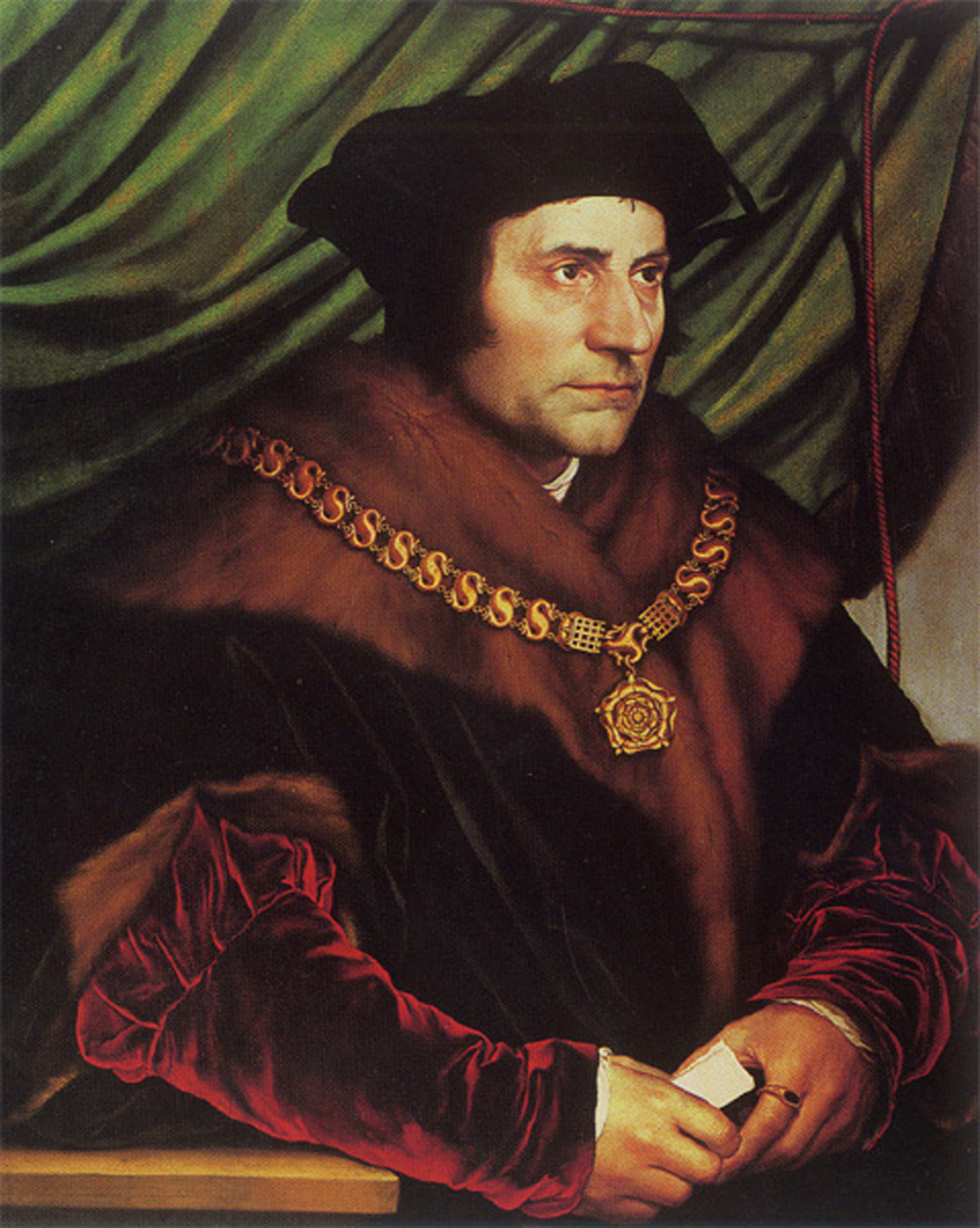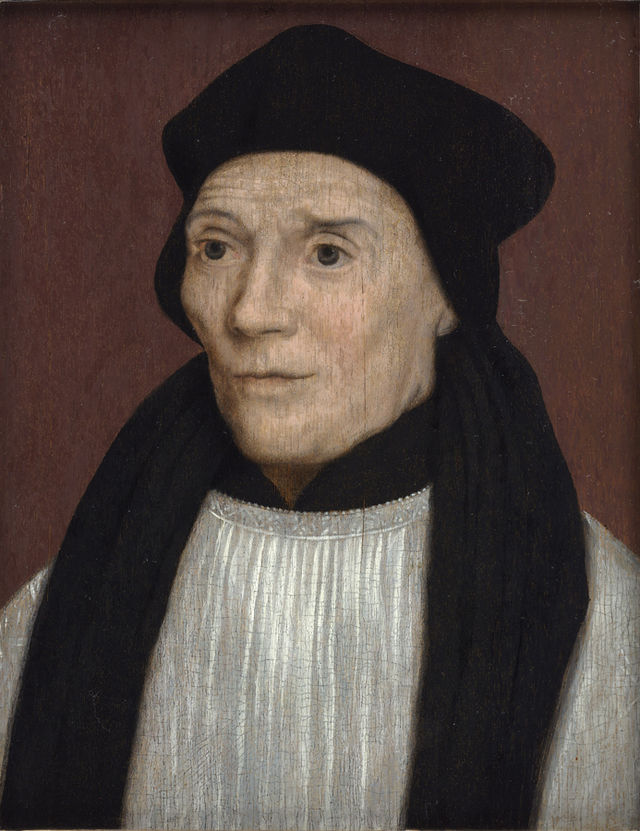
St Thomas More
“No evil shall come upon you”, (Jerem. 23. 17). It is a consoling thought that God watches over us with unceasing care; that no matter where we may be – alone in our humble cell or passing through the crowded streets of the feverish panting city – the hand of God is over us and sheltering us from a thousand unknown dangers, guiding us safely along the path of life. Wicked men may plot evil things against us, all the hellish horde may rage in fury round us, but harm us they cannot without His consent who directs all things for His own wise ends.
COMMENT: Fr Doyle certainly personified this tremendous trust in God throughout his own adventurous life. But we also see this abandonment to, and trust in, Divine providence in the lives of all the saints, and none more so than the great Thomas More whose feast is today.
There is something quite fascinating about lay saints. There are obviously many great saints who were priests or members of religious orders, but then their entire lives – its structure and timetable and relative freedom from worldly cares – more readily orient that life towards sanctity. Yes, it takes much effort, and grace, for religious to reach heroic sanctity, but at least the external form and support of religious life is designed to do this. There are few such obvious supports for lay people. This is why the many new lay movements and organisations of different types and spiritualities are a great assistance as they provide structure and support for holiness for those who must seek that holiness in the midst of daily troubles and distractions.
St Thomas More himself faced many obstacles to sanctity. He was the head of a large household and one of the most powerful men in one of the most powerful countries in the world. In addition to his extensive legal, political and scholarly pursuits (any one of which would have made for a very complete life), St Thomas was a real family man who took the education of his children (and his daughters!) very seriously. He was renowned for his cheerfulness and for the depth of his spiritual life. It is said that he went to bed at 9pm and arose at 2am every morning, spending several hours in prayer before setting off for his busy public engagements at dawn. He was also known for his asceticism, and wore a hairshirt under his robes. He was a third order Franciscan and, due to his relationship with the Charterhouse, was probably the equivalent of what we would today regard as a Benedictine oblate.
When those around him compromised in order to maintain the favour of the King, St Thomas remained steadfast, and gave up everything to remain faithful to the Church. He knew the truth of Fr Doyle’s quote today – God watches over us with care no matter where we may be and no matter whether we remain powerful and respected or whether we end up in prison awaiting death simply because we upset the powers that be. As St Thomas put it himself:
Every tribulation which ever comes our way either is sent to be medicinal, if we will take it as such, or may become medicinal, if we will make it such, or is better than medicinal, unless we forsake it.
Let us pray today that we too may have faith in God’s paternal care for us; let us pray also for our political leaders, that they remain faithful to, and uphold, the natural law. St Thomas faced death for defending the Faith and the nature of marriage. Let us pray for political leaders, that they may always have the courage to do what is right.
Today is also the feast of the heroic bishop and martyr St John Fisher. Let us pray to him for our bishops, that they will have strength when the time of trial comes.

St John Fisher
